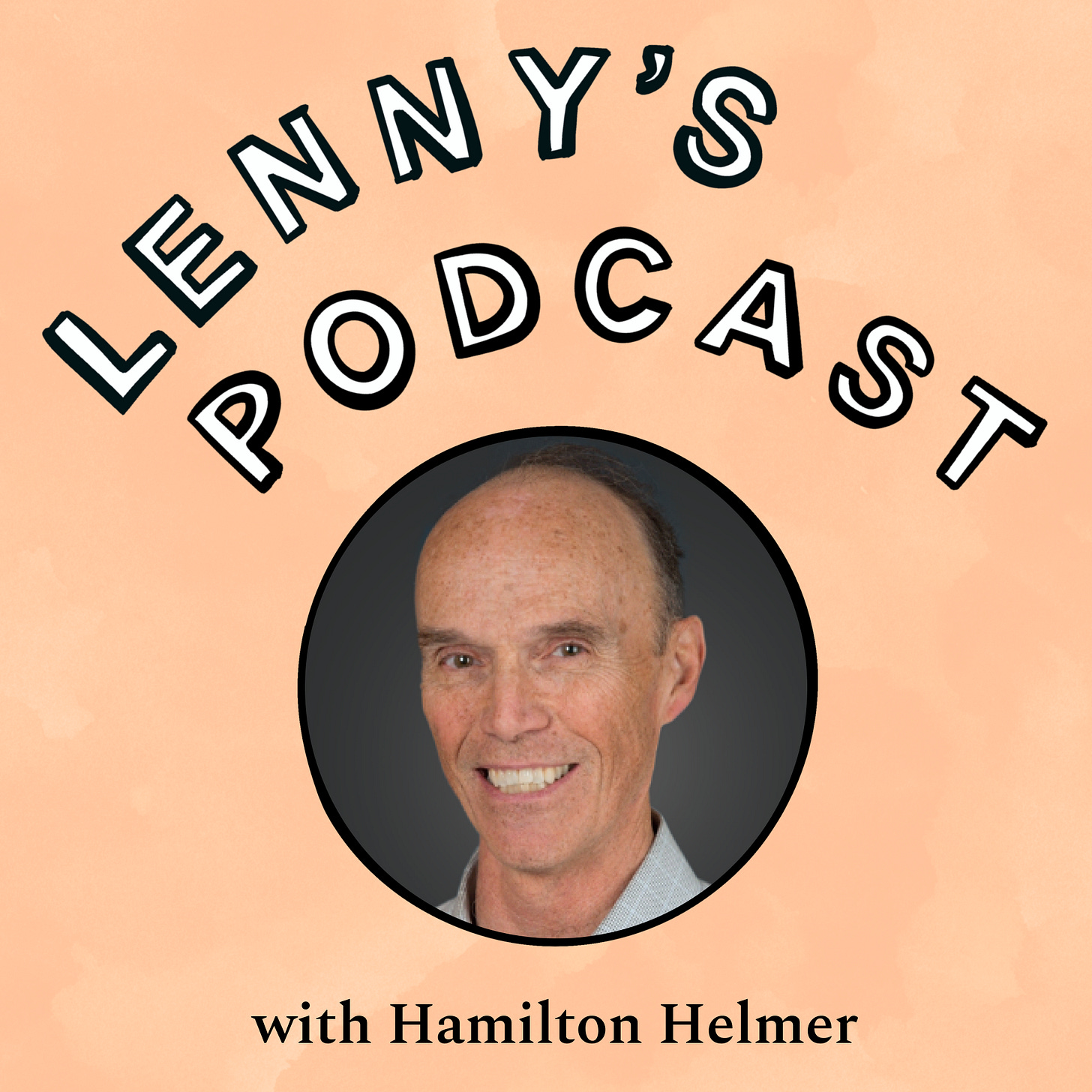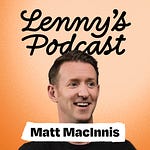Brought to you by:
• WorkOS—Modern identity platform for B2B SaaS, free up to 1 million MAUs
• Vanta—Automate compliance. Simplify security
• Paragon—Ship every SaaS integration your customers want
—
Hamilton Helmer is one of the world’s leading experts on business strategy and the author of the seminal book 7 Powers: The Foundations of Business Strategy, which provides a comprehensive framework for understanding what it really takes to achieve and sustain a competitive advantage. With more than three decades of experience in the strategic consulting industry, Hamilton has advised over 200 companies—from burgeoning startups to Fortune 100 giants—on how to identify, build, and leverage their unique strategic powers. In our conversation, we discuss:
Potential sources of power that startups should develop from an early stage
Common misconceptions among companies about the types of power they possess
How power relates to strategy
The difference between a moat and a power
Practical strategies for non-leaders to leverage insights about power and strategy in their work
AI’s impact on competitive advantages and barriers to entry
Some takeaways:
The 7 sources of power:
Brand: Your unique brand identity attracts and retains a significant number of customers.
Process power: You can produce something more efficiently than competitors, and the competitors can’t easily copy the method.
Cornered resource: You have exclusive access to a vital resource, such as the only rights to a patent.
Counter-positioning: Your business model/strategy is so counter to that of incumbents that if they copied you, it would hurt their own business.
Scale economies: You can produce something more cheaply than competitors, on a per-unit basis, because of the scale of your operation.
Switching costs: Your customers can’t switch to competitors without bearing a significant cost(s).
Network economies: Your product or service provides more value because of how many other people are already using it.
Power requires both a benefit (e.g. lower cost) and a barrier (e.g. switching costs) that prevents others from imitating or neutralizing that advantage. Beware of common delusions, like overestimating the power of branding, data scale effects, or operational excellence.
You should always be thinking about strategy, even before product-market fit. This doesn’t mean writing detailed plans about every element of your business. It means thinking about what your “source of power” could be and how you’ll establish it.
Power is at the heart of any good strategy. It’s something that gives you a material advantage over competitors that is impossible for them to mimic. It requires a benefit and a barrier. As Warren Buffett famously said, “I look for economic castles [benefit] protected by unreachable moats [barrier].” It would be pointless having a moat around an insignificant shack. And it would be pointless having a castle with no moat or protection around it.
For tech startups, it’s common to move from (c) to (g) in chronological order. They start with counter-positioning in order to survive competition from incumbents with many more resources. Then they unlock cost/price advantages as a result of scaling. Eventually their customers face switching costs because of the way they’ve used and invested in the product. And finally, tech startups can establish network economies with a critical mass of users.
The first 3 sources of power are rare for tech companies. The company is usually too young to have built sufficient brand love or uniquely efficient processes, and cornered resources are uncommon unless operating in a highly regulated industry.
Network effects refer to the increase in value or utility of a product or service as more people use it. Network economies go further by indicating whether these effects translate into significant financial advantages for the business.
Despite macro risks, the entrepreneurial creativity and bias toward action found in the U.S. and places like Silicon Valley remain a vital source of economic advancement. Founders should focus on leveraging their unique strengths and “just do stuff” rather than get paralyzed by over-strategizing.
Listen now on Apple, Spotify, Overcast, and YouTube.
Where to find Hamilton Helmer:
• X: https://twitter.com/hamiltonhelmer
• LinkedIn: https://www.linkedin.com/in/hamilton-helmer-42983/
• Website: https://7powers.com/
In this episode, we cover:
(00:00) Hamilton’s background
(04:08) When power becomes important
(08:24) How strategy relates to power
(12:09) How power informs strategy
(14:46) The sequence of powers
(21:13) Common misconceptions
(24:39) Network effects vs. network economies
(26:58) Uber’s success
(29:16) Moats vs. powers
(31:12) Strategies for non-leaders to leverage power and strategy
(37:51) Advice on how to become a strategic thinker
(39:27) AI’s impact on the seven powers
(45:43) Why moving fast is not a power
(50:24) Three things that create value in a company
(51:16) The debt trajectory of the U.S.
(56:35) Optimism for the future
(59:25) Lightning round
Referenced:
• 7 Powers: The Foundations of Business Strategy: https://www.amazon.com/7-Powers-Foundations-Business-Strategy/dp/0998116319
• John von Neumann: https://en.wikipedia.org/wiki/John_von_Neumann
• Pearl Harbor: https://www.history.com/topics/world-war-ii/pearl-harbor
• Where the Japanese Went Wrong at Pearl Harbor: https://pearlharbor.org/blog/where-japanese-went-wrong-pearl-harbor/
• The ‘7 Powers’ of business success—from one of Netflix’s early investors: https://www.qualitycompounders.com.au/post/the-7-powers-of-business-success-from-one-of-netflix-s-early-investors
• 7 Powers: Foundations of Business Strategy (Key Takeaways): https://www.linkedin.com/pulse/7-powers-foundations-business-strategy-key-takeaways-nikita-maloo/
• Strategy Capital: https://strategycapital.com/
• Warren Buffett: https://www.forbes.com/profile/warren-buffett/
• Charlie Munger: https://www.forbes.com/profile/charles-munger/
• Poor Charlie’s Almanack: The Essential Wit and Wisdom of Charles T. Munger: https://www.stripe.press/poor-charlies-almanack
• Bill Gates reveals why Warren Buffett was an invaluable source of support during the stormiest period of his career: https://www.businessinsider.com/bill-gates-interview-warren-buffett-support-microsoft-antitrust-lawsuit-2019-6
• Billionaire Warren Buffett’s Secret Love Affair With Castles, Revealed: https://www.thestreet.com/opinion/billionaire-warren-buffett-s-secret-love-affair-with-castles-revealed-14290973
• Netflix didn’t kill Blockbuster—how Netflix almost lost the movie rental wars: https://www.cnbc.com/2020/09/22/how-netflix-almost-lost-the-movie-rental-wars-to-blockbuster.html
• Michael Porter on LinkedIn: https://www.linkedin.com/in/professorporter/
• What Is Strategy?: https://hbr.org/1996/11/what-is-strategy
• TSMC: https://www.tsmc.com/english
• Toyota Production System: https://en.wikipedia.org/wiki/Toyota_Production_System
• America will be left with ‘severe, irreversible scars’ if national debt goes unchecked. Now, a blockbuster report warns the bill is higher than believed, hitting $141T by 2054: https://fortune.com/2024/04/01/america-social-economic-scars-us-debt-gomes-price/
• Ben S. Bernanke: https://www.federalreservehistory.org/people/ben-s-bernanke
• Forty-four of 50 U.S. states worsen inequality with ‘upside-down’ taxes: https://www.theguardian.com/us-news/2024/jan/10/states-wealth-inequality-taxes
• Joseph A. Schumpeter: https://en.wikipedia.org/wiki/Joseph_Schumpeter
• Theory of Economic Development: https://www.amazon.com/Theory-Economic-Development-Science-Classics/dp/0878556982
• The Road to Reality: A Complete Guide to the Laws of the Universe: https://www.amazon.com/Road-Reality-Complete-Guide-Universe/dp/0679776311
• The Gene: An Intimate History: https://www.amazon.com/Gene-Intimate-History-Siddhartha-Mukherjee/dp/147673352X
• American Fiction on Prime Video: https://www.amazon.com/American-Fiction-Jeffrey-Wright/dp/B0CQKR72NX
• Farahan Sarouk rugs: https://nazmiyalantiquerugs.com/persian-sarouk-farahan-rugs/
• Rory Sutherland on LinkedIn: https://www.linkedin.com/in/rorysutherland
• Ogilvy: https://www.ogilvy.com/
• Clint Eastwood quote: https://www.brainyquote.com/quotes/clint_eastwood_168005
• Winston Churchill: https://en.wikipedia.org/wiki/Winston_Churchill
• Michelangelo, God’s Architect: The Story of His Final Years and Greatest Masterpiece: https://www.amazon.com/Michelangelo-Gods-Architect-Greatest-Masterpiece/dp/0691195498
• The Last Judgment: https://en.wikipedia.org/wiki/The_Last_Judgment_(Michelangelo)
• Theodore Roosevelt: https://www.whitehouse.gov/about-the-white-house/presidents/theodore-roosevelt/
Production and marketing by https://penname.co/. For inquiries about sponsoring the podcast, email [email protected].
Lenny may be an investor in the companies discussed.













